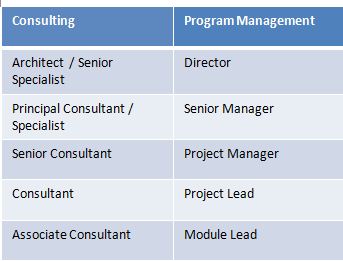
Before you sign a contract with a consultant, make sure you understand the various aspects of the agreement. These include the scope and fees of services as well as the compensation schedule. A contract should also detail the overhead costs. These issues could have a significant influence on the scope or your project.
Contractor
A contractor can be an independent businessperson who agrees in exchange for a specific type or work. They are responsible for assessing the client's needs, executing the work and providing advice. Companies that are looking for temporary expertise and don't wish to hire permanent employees often hire contractors. A contract typically covers a specific number of hours and can easily be amended by either party.

Independent contractor
Hire an independent contractor and be clear about the services you need, the compensation, and when payment is due. Payment terms should be included, such as a late penalty fee and an early completion bonus.
Confidentiality
To protect client and consultant information, a confidentiality agreement should be in place. The consultant must be allowed to use any information it has about the client in accordance with the contract. The client must also state what he/she does not want to reveal. It is important to outline the legal remedies that are available in case any information is misappropriated. It is also important to require that all consultants assigned to particular accounts sign a personal confidentiality contract. This will ensure that the confidentiality provisions are upheld long after the contract ends.
Indemnification
An indemnification clause is included in a contract that you signed with a consultant to protect your interests. Indemnification clauses may be useful in case you are involved in a lawsuit against a consultant for not completing the project according your specifications. This will help you avoid having to pay defense costs. If used properly, indemnification clauses are common in consulting contracts. They can however be costly, particularly if they're required for third party reimbursements in the case of litigation.
Taxes
It is crucial to fully understand the terms of a contract signed with a consultant. The company will take 10% off the consultant's pay, but the contractor will have to pay the tax advance over three installments. Additionally, the applicable regulations must be followed if the consultant renders services that fall within the scope of the service tax regulations.

Payment
If you're hiring a consultant to provide services to your company, it is important to make timely payments to retain their services. The consultant could be fired if they aren't paid on time. This can lead to frustration, friction, and even cause them to quit. There are freelancing management software that can make this process much easier and quicker. These systems approve invoices automatically and send out payments according to your payment terms. They also ensure that your consultants receive their payments in the currency they require. Automating the process will save you time and allow your consultants to receive their funds on time.
FAQ
How is consulting different from freelancing
Freelancers can be self-employed people who provide their services to clients, without the involvement of employees. They charge hourly rates depending on the amount of time spent on a client's projects. Consultants usually work for agencies or companies that employ them. They are often paid monthly or annually.
Consultants often have more flexibility, while freelancers can choose to work when they want and set their own rates. Consultants, however, often have better benefits such as retirement plans, vacation days, and health insurance.
Why would a company employ a consultant to help them?
Consultants provide expert advice on how to improve the performance of your business. Consultants are not there to help you sell products.
A consultant assists companies in making better decisions by offering sound analysis as well as suggestions for improvement.
Consultants often work closely alongside senior management teams to help understand what they need to succeed.
They provide coaching and leadership training for employees to enable them to achieve their peak performance.
They might advise businesses on how to reduce costs, streamline processes, or increase efficiency.
What is a consultant and what are their responsibilities?
A consultant is someone who offers services to others. This is more than a job title. You help others achieve their goals. This involves helping them to understand their choices and making the right choices.
Consultants can help you solve problems or overcome challenges when working on projects. They provide advice and guidance about how to implement those solutions.
Consulting should be able address questions related to law, finance and technology.
What are the different types of jobs available for consultants?
Consulting requires an in-depth understanding of operations and business strategy. You need to be able to comprehend how businesses function and how they fit in with society.
You must have excellent communication skills as well as the ability to think critically in order to be a consultant.
Consultants should be flexible because they may be asked for different tasks at various times. They should be able change direction quickly, if required.
They should be able to travel extensively for clients. They may be required to travel all over the globe for this type of work.
They also need to be capable of handling stress and pressure. Consultants may sometimes be required to meet tight deadlines.
Consultants are often expected to work long hours. This can mean you might not always receive overtime compensation.
Statistics
- "From there, I told them my rates were going up 25%, this is the new hourly rate, and every single one of them said 'done, fine.' (nerdwallet.com)
- Over 50% of consultants get their first consulting client through a referral from their network. (consultingsuccess.com)
- 67% of consultants start their consulting businesses after quitting their jobs, while 33% start while they're still at their jobs. (consultingsuccess.com)
- My 10 years of experience and 6-step program have helped over 20 clients boost their sales by an average of 33% in 6 months. (consultingsuccess.com)
- WHY choose me: Why your ideal client should choose you (ex: 10 years of experience and 6-week program has helped over 20 clients boost their sales by an average of 33% in 6 months). (consultingsuccess.com)
External Links
How To
What does a typical day look like for a consultant?
A typical day will vary depending on the type of work you are undertaking. You will be spending time researching, planning new ideas, meeting with clients, and creating reports.
You will often have meetings where you discuss issues and problems with clients. These meetings can take place over the phone, via email, online, or face to face.
Also, proposals are documents that outline your ideas or plans for clients. These proposals will be presented to clients by you and a mentor.
After all the preparation and planning, it's time to actually create some content. For example, you could be writing articles, designing websites, creating videos, editing photos, or conducting interviews.
Based on the scope and complexity of the project you may need research to obtain relevant statistics. For example, you may need to find out how many customers you have and whether they are buying more than one product or service.
Once you have enough information, it is time to present your findings and conclusions to clients. You may give your findings orally or in written form.
After your initial consultation, you should follow up with your clients. You might contact them regularly to check on their progress or send them emails to confirm they have received your proposal.
This process takes time, but it's important to ensure that you stay focused and maintain good relationships with clients.